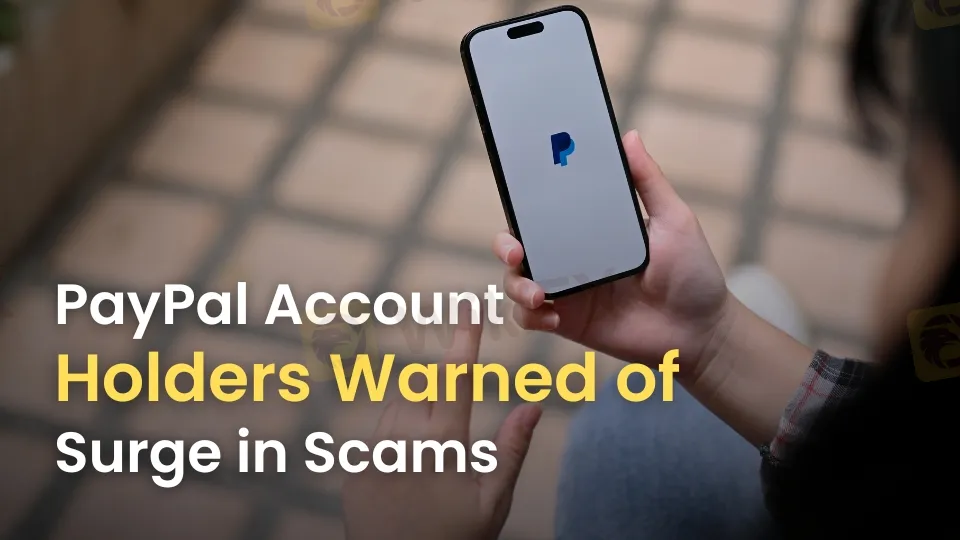简体中文
繁體中文
English
Pусский
日本語
ภาษาไทย
Tiếng Việt
Bahasa Indonesia
Español
हिन्दी
Filippiiniläinen
Français
Deutsch
Português
Türkçe
한국어
العربية
PayPal Account Holders Warned of Surge in Scams
Abstract:Experts warn of increased PayPal scams, including fake emails and gift cards. Stay alert to protect your account from cybercriminals.

Cybersecurity specialists have sent out an urgent alert to everyone using PayPal, pointing out a sharp increase in attacks aimed at this widely used payment service. According to McAfee Labs, scams linked to PayPal have jumped by 600% since the year began. These tricks mostly come in the form of fake emails that say your account is blocked and push you to update your information to unlock it.
Besides these sneaky emails, other traps include made-up gift card deals from PayPal, bogus bills, and scams pretending to be customer support for payment problems. These schemes are getting smarter and often target big names like PayPal, which gets a lot of attention because so many people use it.
Experts from McAfee explain: “PayPal is doing its best to keep users safe, but crooks keep finding new ways to attack, especially focusing on popular companies that people hear about a lot.”
This wave of scams comes from a carefully planned effort where attackers send emails that look real, with urgent subject lines like “Action Required.” These messages scare users into updating their details fast—within 48 hours—or they might lose their account.
To keep your PayPal account safe, McAfee suggests being careful with emails claiming to be from PayPal. Watch out for links that take you to strange websites instead of PayPals official page. For added protection, McAfee also advises checking out a simple list of safety tips for PayPal users, helping you stay ahead of these online thieves.

Disclaimer:
The views in this article only represent the author's personal views, and do not constitute investment advice on this platform. This platform does not guarantee the accuracy, completeness and timeliness of the information in the article, and will not be liable for any loss caused by the use of or reliance on the information in the article.
Read more

Retirement Dreams Shattered: Don't Do This To Yourself!
Two retired Malaysian men have collectively lost more than RM1.14 million to fraudulent investment schemes promoted on social media platforms.

CySEC Cancels ITrade Global’s Forex Trading License
CySEC revokes ITrade Global's license for governance failures, fining leadership, and ordering client fund returns. Learn about the Forex broker's regulatory issues.

EU Regulators Imposed Over €71M in Sanctions in 2024, ESMA Calls for Enforcement Convergence
A new report by ESMA reveals that national regulators across the EU issued more than 970 sanctions totaling €71 million in 2024. While market abuse and MiFID II violations dominated the fines, the agency highlighted the fragmented enforcement landscape across member states.

Warning: Exclusive Markets Broker Accused of Fraudulent Trading Practices
Trader warns of fraudulent practices with Exclusive Markets, including account manipulation and unjust profit removal. Learn about this latest case of broker misconduct.
WikiFX Broker
Latest News
Inside MBI: The Billion-Dollar Ponzi Scheme That Shook Malaysia
ZFX: A Closer Look at Its Licences
Should you buy or sell US dollars in the next three to six months?
Tradehall Broker Review 2025: Read Before Trade
XM Rolls Out New Forex Trading Competition Platform for 2025
Danske Bank expects the European Central Bank to make its final interest rate cut in September.
EU Regulators Imposed Over €71M in Sanctions in 2024, ESMA Calls for Enforcement Convergence
MiCA Unlocks EU Crypto Market, but National Tensions Rise as Gemini and Coinbase Near Approval
IronFX Review 2025: Is This Broker Trustworthy or a Scam?
Exclusive Markets MT4 and MT5 Review 2025
Currency Calculator


